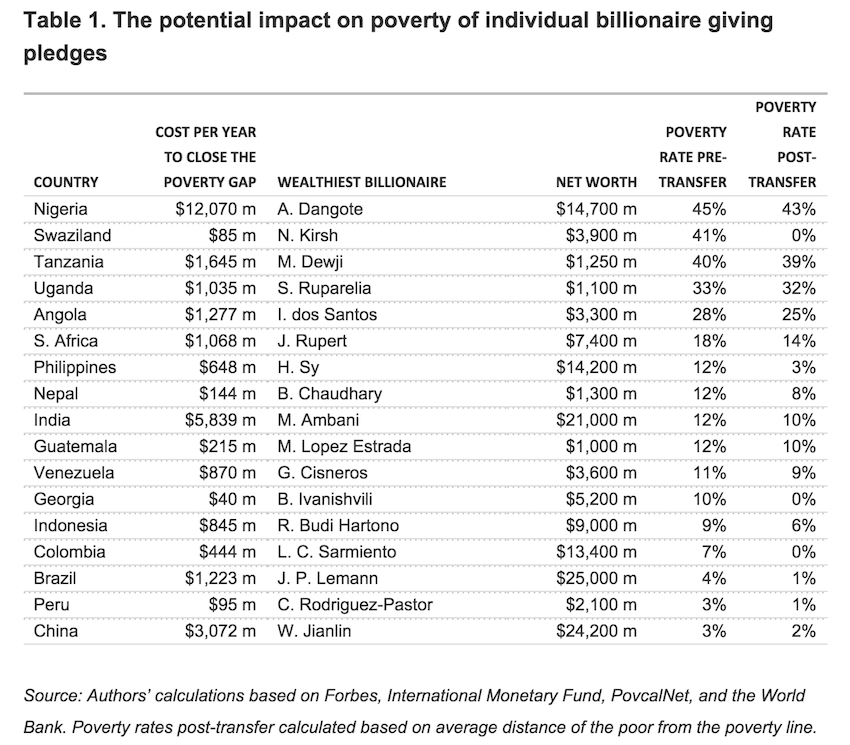Extreme poverty—defined as living on less than $1.25 a day—has declined by half since 1990, and could theoretically be eliminated across the globe in the next few decades. But there are three countries—Colombia, Georgia, and Swaziland—where a single resident billionaire could eliminate extreme poverty altogether, for at least 15 years. In six other nations, that goal could be achieved by having all the countries billionaires pool their resources.
That’s the finding in an intriguing article by Laurence Chandy, Lorenz Noe, and Christine Zhang. They note that several countries are home to billionaires with enough wealth to lift the poor above the poverty line:
Let’s assume that the richest billionaire in each country agrees to give away half of his or her current wealth among his or her fellow citizens, disbursed evenly over the next 15 years, roughly in accordance with the Giving Pledge promoted by Bill Gates. That money would be used exclusively to finance transfers to poor people based on their current distance from the poverty line. Transfers would be sustained at the same level for the full 15-year period with the aim of providing a modicum of income security that might allow beneficiaries to sustainably escape from poverty by 2030.
They provide this chart that shows which countries and which resident billionaire could close the poverty gap.

“This exercise is of course laden with simplifying assumptions,” the authors admit. “It is intended to provoke discussion, not to provide definitive figures.”
It is indeed more useful for provoking thought than for providing a solution.
Though some might argue that this confirms that redistribution of wealth (whether voluntary or forced) could solve the poverty problem, what it really shows is that money alone is not enough to fix extreme poverty. In fact, the authors even provide a helpful chart that shows that current foreign aid is already sufficient to close the poverty gap.

Cash transfers to the poor may help alleviate emergency conditions, but they rarely lead to the necessary changes in the underlying structural, cultural, and political conditions that cause extreme poverty. As many bankrupt lottery winners can attest, having more money does not always solve economic problems—and can even cause bigger troubles than before.
While it doesn’t offer a workable solution this thought experiment shows how close we are to solving one of humanity’s greatest and most persistent problems. It also points to where the solution may come from. The poor don’t just need access to a billionaire’s cash, they need access to the types of entrepreneurialism and innovations that helped the Bill Gates and Mark Zuckerbergs of the world become billionaires.

